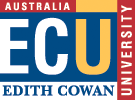COURSE INFORMATION
Disclaimer
This course information may be updated and amended immediately prior to semester. To ensure you have the correct outline, please check it again at the beginning of semester.
| V31 / U54 Bachelor of Science (Internet Computing) | ||||||||||||||||||||||||||||||||||||||||||||||||||||||||||||||||||||||||||||||||||||||||||||||||||||||||||||||||||||||||||||||||||||||||||||||||||||||||||||||||||||||||||||||
The Faculty of Computing, Health and Science offers a general Bachelor of Science with a wide range of discipline concentrations and a number of more specialised Bachelor of Science courses providing specifically identified major studies.
Requirements for each of the specific awards offered in the School of Computer and Information Science are detailed below.
The more flexible award is described earlier in the Handbook.
INTRODUCTION This is a three year full-time (or part-time equivalent) program leading to a Bachelor of Science dgeree.
INTERNET COMPUTING Course Code XXX (Fee paying Australian students) Course Code XXX (International students and HECS-liable Australian students)
The Bachelor of Science (Internet Computing) is an undergraduate course that recognises the importance of internet, intranet and mobile computing and their impact on modern business. Specifically, the course recognises:
The Bachelor of Science (Internet Computing) provides students with the knowledge to actively assist industry and government transform commerce and the delivery of information and services. This innovative course provides students with the skills and expertise to design, create, implement and integrate internet, intranet and mobile computing applications for the online environment.
Graduates have a solid grounding in programming, systems analysis and design, database, security issues, networking, project management and interactive web development. This can lead to graduates being employed as developers of online solutions, programmers, web site managers, and project managers for the online environment. The knowledge gained from this course is applicable across multiple industries. A fourth year of study leads to an Honours degree.
The Bachelor of Science (Internet Computing) is accredited at the professional level by the Australian Computer Society (ACS).
COURSE LOCATION AND MODE OF STUDY The course is available by full-time or part-time study on Mount Lawley campus.
ADMISSIONS REQUIREMENTS In addition to standard admission requirements, applicants require a TEE mathematics subject, or a TEE science subject or TEE Information Systems.
COURSE STRUCTURE The Bachelor of Science (Internet Computing) requires a total of 360 credit points made up of eighteen core units, a six unit minor or six elective units. Students under-taking the Internet Computing degree complete the following program: |
||||||||||||||||||||||||||||||||||||||||||||||||||||||||||||||||||||||||||||||||||||||||||||||||||||||||||||||||||||||||||||||||||||||||||||||||||||||||||||||||||||||||||||||
| ||||||||||||||||||||||||||||||||||||||||||||||||||||||||||||||||||||||||||||||||||||||||||||||||||||||||||||||||||||||||||||||||||||||||||||||||||||||||||||||||||||||||||||||
Last Updated - Higher Education: 11/18/2004
